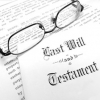
While often difficult, having discussions with your family about estate planning, and how your assets will be distributed when you die, is so important. Here are just some of the key building blocks to consider when looking to create your own family succession plan.
Have a valid Will…
There are many problems that arise if you don’t have a valid Will – problems that can cause a great deal of distress to your family when you die.
A valid Will details in writing how you wish your assets to be distributed, and must be dated and witnessed by two people who are not your beneficiaries.
Not having a Will, or having one that is poorly worded, could mean that your assets won’t be distributed according to your wishes, as well as causing delays, additional costs and possible tax implications.
After establishing a Will, it’s also important to see it as a ‘living document’, one that should be updated regularly as your financial, health, lifestyle and family circumstances change.
Power of attorney…
A power of attorney gives a person, or a trustee company, the power to manage your financial and legal affairs while you’re still alive.
Giving someone you know the ability to make these decisions, rather than a court, gives you peace of mind that you’ll be taken care of when you’re no longer able to manage your affairs on your own.
There are different types of powers of attorney, which can also depend on which state you live in, so you should get legal advice on what best suits your situation.
By planning ahead before an emergency eventuates will give you and your family the opportunity to review all the options, which can help you to avoid a significant legal and financial burden should something happen.
Enduring guardianship…
Similar to a power of attorney, an enduring guardianship allows you to appoint someone that can make important lifestyle decisions, or approve specific medical treatment, on your behalf when you’re incapable of doing so.
Enduring guardianship is extremely broad, giving you and your family the flexibility to include the functions that are most important to you.
A person that’s well known to you and your family, but has no financial interest in your estate, is often a good choice to be your guardian.
Buy/sell agreement…
If you have a business partner, it’s important to have a strategy in place that will ensure your share of the business is passed onto your estate as quickly and as efficiently as possible.
One such strategy is a buy/sell agreement, which uses a life insurance policy to pay for the future purchase or sale of shares in your business.
These agreements are usually triggered by a specific event, such as disability or death, with the proceeds from the insurance policy helping to transfer the full value of your share in your business to your estate.
Get financial advice…
Estate planning is a very complex area, and one where it’s easy to make decisions that seem appropriate at the time, but can prove costly in the long run.
Engaging an experienced financial adviser will help you and your family to understand all of your estate planning options, and allow you to create a plan that meets your needs.